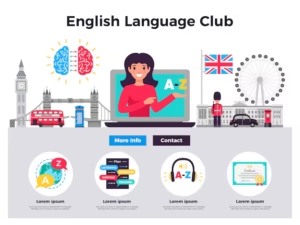Introduction:
The Ubiquity of English English is a language spoken by billions around the world today. From daily conversations to worldwide business, English plays an essential function in communication. However, the language’s adventure from its origins to become the most broadly spoken second language is a tale of migration, variation, and evolution.
The Roots of English:
An Ancient Review The records of the English language may be traced lower back to the early medieval period. It began with the Germanic tribes—the Angles, Saxons, and Jutes—who migrated to the British Isles in the fifth and sixth centuries. Those tribes brought their local tongues, which shaped the earliest version of what we now recognize as vintage English.
old English, or Anglo-Saxon,
changed into a complex language inspired using the Germanic dialects of those tribes. Though quite wonderful in cutting-edge English, antique English laid the foundation for the language’s structure and vocabulary.
The Vikings affected old Norse Integration The eighth to eleventh centuries marked the technology of Viking invasions in Britain. With those invasions, the mixing of vintage Norse, a language that left a good sized impact on antique English. Words including “sky,” “egg,” and “knife” are remnants of this Norse effect.
This blending of languages simplified grammar rules and multiplied the lexicon, placing a precedent for similar linguistic evolution.
Norman Conquest and Center English
Transformation In 1066, William the Conqueror’s victory at the war of Hastings added Norman French rule to England. The Normans spoke a dialect of old French, which began to intertwine with the prevailing old English. This era caused the emergence of center English, a language characterized by a huge inflow of French vocabulary. Phrases related to governance, artwork, regulation, and cuisine, together with “authorities,” “court docket,” “red meat,” and “royalty,” entered the English lexicon for the duration of this time.
middle English
developed right into a language that became extra accessible and flexible, accommodating both the ruling class’s French and the not-unusual humans’s antique English.
The delivery of present-day English
The transition from Middle English to fashionable English began around the past due 15th century and was heavily influenced by the Renaissance. This era saw a renewed interest in classical languages, mainly Latin and Greek, mainly due to the addition of heaps of the latest phrases to the English vocabulary. The discovery of the printing press by Johannes Gutenberg in 1440 performed a pivotal role in this transformation. When William Caxton added the printing press to England in 1476, it standardized spelling and grammar, facilitating the improvement of a more uniform language.
Shakespeare and the Enrichment of English William
Shakespeare, one of the greatest individuals in the English language, wrote throughout the overdue sixteenth and early seventeenth centuries. His works brought over 1,seven-hundred words and limitless idiomatic expressions which might be nevertheless in use nowadays. Terms together with “lonely,” “gossip,” and “swagger” exhibit Shakespeare’s linguistic creativity. His impact on now not only enriched the English vocabulary but also validated its versatility in literature and ordinary verbal exchange.
Colonial Growth and the Globalization of English
The British Empire’s colonial expansion from the sixteenth to the 20th century was instrumental in spreading the English language to extraordinary continents. The established order of colonies in North the united States, Africa, Asia, and Australia ensured that English became a language of commerce, governance, and training in lots of areas around the world.
This global attain meant that English began to absorb words from numerous languages it came into contact with. For example, “bungalow” from Hindi, “safari” from Swahili, and “ketchup” from the Chinese language all have become part of the English vocabulary, reflecting its potential to evolve and evolve.
They have had an impact on of era and current Media in the twentieth and 21st centuries, advancements in the era and the upward push of the internet further propelled English into worldwide prominence. English became the primary language for medical studies, international enterprises, and digital content material. Social media, TV, and film strengthened its fame as an everyday language. The huge use of English in media has influenced speech styles, slang, and new word formations, consisting of “blog,” “emoji,” and “selfie.”
Cutting-edge trends and destiny possibilities nowadays, English keeps evolving, with new words and phrases entering the lexicon frequently. The globalization of business, the prevalence of social media, and ongoing cultural exchanges make sure that English remains dynamic. Variations of English, which include American, British, Australian, and Indian English, similarly display the language’s flexibility and regional variations.
English’s future
lies in its ability to live applicable by way of embracing changes encouraged through technology and societal shifts. As a language that has established its resilience through centuries, English is poised to adapt to the changing desires of global conversation.

End:
The Iconic Legacy of English From its Germanic roots to its modern-day role as an international lingua franca, the evolution of the English language tells a story of adaptability and resilience. Its journey through records showcases how languages develop, motivated with the aid of migration, conquest, cultural alternate, and innovation. The English language, with its wealthy and complicated records, stands as a testimony to human interplay and development. Its huge use these days isn’t always best a mirrored image of historical occasions however a signal of its persevering increase and effect on the world.
(FAQs) about the English Language
1. What are the principle origins of the English language?
The English language originated from the Germanic tribesAngles, Saxons, and Jutes—who settled in Britain within the fifth and sixth centuries. Their dialects formed the inspiration of vintage English.
2. How has English evolved?
English has evolved through numerous stages: old English, center English, Early contemporary English, and contemporary English. Every level saw influences from invasions, alternate, cultural exchange, and technological advances.
3. Why is William Shakespeare crucial to the English language?
William Shakespeare elevated the English language notably by using coining new phrases and expressions. His contributions enriched the language’s vocabulary and showcased its flexibility.
4. What effect did the Norman Conquest have on English?
The Norman Conquest in 1066 added a big French influence, especially in regulation, governance, and art. This period transitioned the language to center English, adding many French-derived phrases.
5. How did the English language spread globally?
The unfolding of English was facilitated by the British Empire’s growth from the 16th century onwards and later by using the worldwide impact on us in the 20th century.
6. Why is English taken into consideration as a global language nowadays?
English’s fame as an international language is because of its historic colonial growth, its position in global commercial enterprise, international relations, and technology, and its incidence in media and education.
7. How has the contemporary era inspired English?
The current era, particularly the net and social media, has delivered new words and slang into the language, together with “selfie,” “meme,” and “hashtag,” making sure it persevered evolution.
8. What are the fundamental variations of the English language?
English has several versions, together with British English, American English, Australian English, and Indian English, every with specific spellings, vocabulary, and pronunciations.
.





Average Rating